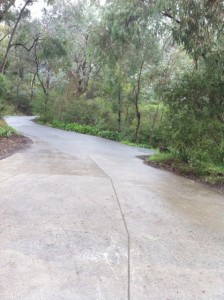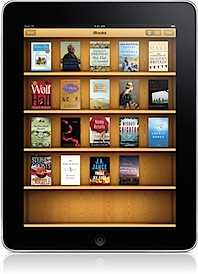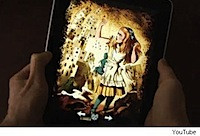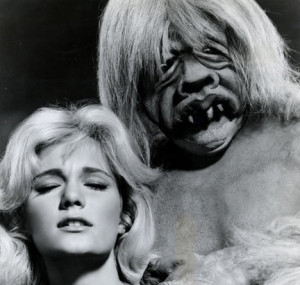Category Archives: iPad
Fixing the Tool
Joining the Revolution
I’ve joined the electronic revolution and purchased an iPhone. Having been resistant for some time, I could no longer avoid the temptation of having the social networks at my fingertips, cool apps to explore, email at the tap of a button, and a personal calendar on hand. Now I can relieve my purse of my pocket-sized appointment book and my emergency Sudoku pad. No longer will I have to fumble for someone’s phone number or wish I could send a photo directly to Facebook. I can do all of these things and more.
And therein rests the problem. The iPhone, like its larger cousin the iPad, is in itself a complete source of entertainment. Miss a favorite TV show? Watch it on your device. Need to look up the nearest pizza palace? Ask Siri. Need to kill time at the doctor’s office? Read a book on iBooks. Or better yet, play a game of Solitaire.
No wonder people’s attention spans are decreasing. It makes me worry for the future of reading. Who will be able to concentrate on finishing an entire novel when so many other activities require less effort?
Thank goodness for teen fiction that captures the interest of our youth and perhaps spurs them on to develop a lifelong reading habit. Because once the older generation who gobbles up our stories in print form dies off, who will be left? Consumers who expect their reading material to arrive in the form of daily excerpts? Will the art of storytelling devolve into single page entries? How can we make reading more attractive to the younger set to compete with iTunes?
Storytelling will always be part of our psyche even if the means of delivery evolves. But as a novelist, I am concerned for the future of our art. Can those of us trained to write lengthy works adapt to the changing marketplace? What if we have no choice? Do we want to write shorter, compelling, quicker prose? Can we compete with smartphones and tablets, or must we join the revolution and change our techniques to suit them?
A New Slippery Slope
Advertising in e- books. Are you ready for it? Do you want it? Granted, advertising in a book is not a new idea. There are paperback imprints that in the front or back of one book will place ads for other books which they publish which may be of similar interest to the reader. There was a somewhat short-lived experiment in the early 1970s to place four-color ads for cigarettes in the middle of paperbacks as well. But…advertising in an e-book?
That is the idea currently being floated by Harper UK. As it is currently conceived, such commercial interruptions would be limited to works of non-fiction (apparently because we readers of fiction have such easily derailed attention spans). The example which was presented was that an e-book concerning bird-watching could contain an advertisement for binoculars. You can see where this could go. Imagine the irregularly scheduled commercial in the e-book version of a sex manual. Or an ad for ginsu knives in a true crime book. Given the ever-growing popularity of the iPad (not to mention the Kindle Fire) such a commercial or advertisement could manifest itself in multiple media forms. Would it be a page that you could skip by, or perhaps one of those annoying popups for a movie or commercial product? And make no mistake: such a plan may be limited to non-fiction books at the moment, but if the trial with non-fiction e-books is at all successful, works of fiction will be next.
With that in mind, here is a bit of free advice: if you are fortunate enough to have a major entity, be it a publisher or Amazon or whoever, interested in publishing your work, make it your business to determine how and if your agreement addresses this issue. The argument from the other side may be that such an addition to your work in e-form is part of the content, or form, or your work, and thus falls under the purview and authority of the publisher. If you are in a position to negotiate this point (in other words, you haven’t signed anything yet) there are a number of points to consider. Two of the bigger ones would substance and form. You might object to ads for certain products (alcohol, condoms, and firearms, to name but three examples) or products manufactured or sold by a certain companies (The GAP, Wal-Mart, Progressive Insurance, and McDonalds, to name but a few). You might also have some concerns with regard to how the commercial is presented, or the product portrayed, in Your Book. An even bigger issue, however, concerns who will get the cheddar from the sale of such ad placement. When an ad is placed in your e-book, will your cash register go Ka-ching? Or will the proceeds of such go into the publisher’s coffers to offset the costs of publishing your e-book?
Is this an issue yet? No; but I believe it will be soon. Authors, published and prospective: what do you think about advertising in an e-book? Do you like the idea, or not? Why? And readers. Would you mind an occasional advertisement? Or are you happy to have a place to go that is ad-free?
The End is Nigh – Read all About it!


A Little of This, a Little of That
I visited one of our local Barnes & Noble superstores — one of those two story freestanding buildings that one can get lost in for hours — and was on the receiving end of a mental gut punch. A good portion of the second floor which had formerly been set aside for fiction has been given over to the expanded children’s section. I don’t have anything against children’s books, mind you; if young ones don’t love reading early it’s doubtful they’ll develop even a deep fond for it later — but a lot of what I saw consisted of book-related merchandise (stuffed animals and the like) as opposed to books. What caused the sinking feeling in the pit of my stomach (and yes, there’s quite a distance to be traversed before one reaches my pit) was that I recalled a very similar occurrence several years before. There was a popular chain store named Media Play that I used to frequent. I walked into one about a year after digital downloading of music became popular, and found that their music CD section was reduced by forty percent. Media Play, by the way, is no longer in business.
What you will find at Barnes & Noble: signs everywhere you look for the Nook (you might say they‘re in every cranny). And the Nook will be available at your local Wal-Mart beginning Monday October 25. You’ll be able to find the Kobo there as well, along with the Sony e-book Reader and something called the iPad. The battle has been joined.
***
Here’s an idea for you: renting e-books. If you can’t afford Ken Follett’s latest book, even as an e-book, rent it for two bucks for two weeks. Pay two bucks, download a DRM-protected file to your Kindle (or Sony Reader, or Nook, or iPad) and read it. It disappears after two weeks. The provider gets a cut and — yes! — the author and the publisher (if there is one) get royalties as well every time a book is downloaded. Under the traditional library model, nobody gets anything when a book is borrowed from the library. I remember a few years ago when I went to borrow a book about a Da Vinci code or something or other and was on a waiting list behind 288 people. If you don’t want to wait to read it, then for a couple of bucks you won’t have to. Reader’s groups would love this. You wouldn’t need a public, tax-supported entity to sustain it, either. I don’t see libraries loving this idea (or jumping on it (some libraries offer audio book and e-book downloads, but the selection is paltry) but its meant as an alternative, not a substitute, to libraries. And suppose you really like the book, and want to keep it? Your rental fee could count, in full or in part, toward the purchase price.
***
A new site to bookmark and check daily: Len Wanner’s The Crime Of It All The Crime Of It All
The Crime Of It All
. It’s devoted to mystery and crime fiction. Worth a look and a read. Repeatedly.
***
And speaking of reading: I’m juggling two books. One is NASHVILLE CHROME by Rick Bass, a fictional treatment of the history of country music’s Brown Family. It’s a wonderfully told cautionary tale about the downside of getting what you wish for. The other is BOOK OF SHADOWS by Alexandra Sokoloff, a beautifully dark tale by one of my favorite authors and people.
It must be love, Ebook love..
You’ll have to bear with me as this is my first effort blogging on the iPad and it feels rather weird – but I have to get used to it as my family and I are embarking on a two month camping odyssey taking in most of the national parks in the Western United States. Tomorrow we head to Sequoia National Park and then Yosemite to start things off. Although I hope to be blogging from the road, there will be a few Mondays where we will be of the grid – but I am hopeful that my trusty iPad will keep me on track. Let’s just call it an adventure.
The one thing I do know for sure is that I am now an official ebook convert. I have to confess I initially viewed ebooks with trepidation. I was fully wedded to my paper book world – until now. Yes, it’s official I’m in love…okay and perhaps just a little addicted to my iPad.
It’s been only a couple of weeks and I have already amassed over 30 iBooks, 5 kindle ebooks and 28 Barnes and Noble ebooks. Now most of these are freebies I admit but still, it’s getting to be a bit of an addiction – believe me I am trying to be restrained! I just can’t help myself. I have also found myself trolling through the free ebook titles on all the sites – hey, you just never know when I might want to read that historical western or that paranormal erotica… Interestingly enough my major worry with ebooks used to be how to differentiate between the legitimate versus the self published but now I am actually browsing I find it is easy to see the distinction ( call me a snob but I haven’t downloaded any books from smash words as yet). To me the fact that publishers are giving me the chance to read titles like John’s No Mercy is great marketing and already I can see how free ebook samples can lure new readers in.
I also love how I get to carry a mini library wherever I go. On a recent flight I could keep my kids entertained with a variety of Beatrix Potter books complete with illustrations and it felt reassuring to know that I could read a number of other books in an instant if they wanted me too. In the past I have been weighed down by all the books I have had to carry.
Okay so enough of the love fest – what excites me is how technology has reinvigorated my love of books and, even more importantly, my children are just as excited as me. The reading experience has not been lost at all – just made a teeny bit cooler. So what piece of technology has done the same for you? Do you remember the thrill of the Walkman or watching your first VHS movie? What technology do you think will help reignite the passion for reading?
My New Toy!
I’ve been giddy with excitement since Friday when I took possession of my new iPad and, although I haven’t bought all the apps or go totally crazy in the iBooks store, I have to admit I’m hooked. I bought it mainly because I wanted an e-reader and since the iPad offers both iBooks as well as the Kindle, it was a no-brainer for me. I also get to feed my NYT crossword addiction! Since my family and I are about to embark on a two month camping/national park odyssey the iPad is also going to be a much lighter (and let’s face it much cooler) option than lugging round a bag full of books, DVDs, DVD player, laptop etc.. The only tricky thing will be working out how to blog with it on the road.
Now I’m an old-fashioned Luddite when it comes to most technology but I have to say, having spent just over two days with my iPad, I really do think that it marks the start of some great changes to come. We’ve blogged long and hard about the whole e-book phenomenon but I know once my parents are like ‘this is cool’ the world must be changing! (for the record my parents are antiquarian book collectors so the mere fact that they are even remotely impressed says something). So here’s my initial verdict on the e-book capabilities of the iPad:
- As my husband had already bought and loaded my own books on the iBookshelf it was very cool to see my books in e-book format 🙂
- I like the fact that you just turn the page in an intuitive way that mimics the feel of reading a paper book. The colors and picture resolution are great (Winne the Pooh was already loaded) and I can see me reading an e-book to my children without feeling disconnected from the physical experience – so far it feels just as cozy reading to them from the iPad (despite the fact they fight over who gets to touch the screen and turn the page).
- I liked the iBooks store but I confess I wasn’t overwhelmed by it. Searching is a bit laborious and there were a lot of titles I couldn’t find (including some of my fellow TMZers) so I think this will take some time to become optimal.
- It was, however, way, way,way too easy to buy a book. I think I downloaded 10 free classic books and 5 paid books it about 10 minutes (seriously they may need to have an ‘e-books anonymous’ society for me!) But this is great news for authors. I can well imagine publishers vying for advertising/space on the ‘featured titles page’ once the iBook store becomes a bigger player in the market.
- Which leads me to what I think will be a great ‘game changer’ – once Amazon and iBooks start eroding the power of big chains like Barnes & Noble I can imagine publishers will be able to diversify and niche market some of their lists better than they can presently (at the moment my understanding is they have very much a ‘will B&N buy this title’ mentality when it comes to acquisitions).
- I was extremely excited to be able to download many of the historical books I use for research so I can read them in a portable format. I used to have to troll through them on my laptop which was very cumbersome.
- Many publishers already have their own apps so readers can go directly to them (My publisher, Penguin USA, for instance, already has one) which is great (though not much different to what’s already out there on the web) but I can see scope for these apps to be expanded which can only help authors.
- Already there are some amazingly cool apps that have created terrific visual/interactive content for books (Alice for iPad for example) and I look forward to many more that attract new readers (never a bad thing!)
So all in all, I give the iPad a big thumbs up. It serves my purposes well and has me finally entering the e-book age (which is a miracle in and of itself).
For any of you who have iPads what’s your verdict? Are there any new apps/developments that you think could really improve the e-reading experience? I can’t wait for historical books to have links embedded in them so I can really get the most out of my research (video links, costume designs etc. would be way cool). I was also thinking that our own JRM could produce a great ‘chicken army’ app…So what about you all, any great book app ideas???
The Future of Reading…and Everything Else
The man who does not read good books has no advantage over the man who can’t. – Mark Twain
Twain’s words remind me of one of the formative movies of my youth, The Time Machine. In this version of the H. G. Wells story, the narrator (Wells himself, played by Rod Taylor) goes far into the future where he discovers the Eloi. They are placid people, living without passion or curiosity–and therefore powerless victims of the Morlocks, who reside underground.
What disgusts Wells is the discovery that the Eloi have given up reading. Their books have crumbled into dust. They have no repository of collective knowledge, except in a museum they don’t frequent.
Thousands of years of building up civilization, gone! So that they can become what they are, virtually mindless beings who spend their days seeking pleasure (only to be enslaved, and eventually eaten, by the Morlocks)
In an essay in the L.A. Times entitled “The Lost Art of Reading,” Times book editor David L. Ulin reflects on the increasing difficulty people are having focusing on, and “inhabiting,” the world of a book:
“Such a state is increasingly elusive in our over-networked culture, in which every rumor and mundanity is blogged and tweeted. Today, it seems it is not contemplation we seek but an odd sort of distraction masquerading as being in the know. Why? Because of the illusion that illumination is based on speed, that it is more important to react than to think, that we live in a culture in which something is attached to every bit of time.”
We know this to be true. With a smartphone and/or an iPad or iTouch, or any other similar item to come down the pike, one never has to face a moment of silence or contemplation again.
So what does this portend for the future of reading? And writing long form narrative fiction? What, in fact, does it portend for the future, period?
I’m asking you. What do you think?
The iPad: Is it really all that?
 I’ll start by saying that I don’t completely understand the Apple mystique, in fact I’m a little perplexed by their cult following. I appreciate my iPod and iPhone as much as the next person (although AT&T easily takes the prize for the worst network). But in my experience, some of the Apple products leave much to be desired. My husband finally convinced me to switch from a PC to a Mac last year–which has absolutely been a mixed bag. Some of the programs, like iPhoto and Scrivener, I love. Yet I can’t fathom why there isn’t a blogging program for Macs that holds a candle to Live Writer. On the plus side: fewer viruses and crashes. But I sorely miss Microsoft Outlook.
I’ll start by saying that I don’t completely understand the Apple mystique, in fact I’m a little perplexed by their cult following. I appreciate my iPod and iPhone as much as the next person (although AT&T easily takes the prize for the worst network). But in my experience, some of the Apple products leave much to be desired. My husband finally convinced me to switch from a PC to a Mac last year–which has absolutely been a mixed bag. Some of the programs, like iPhoto and Scrivener, I love. Yet I can’t fathom why there isn’t a blogging program for Macs that holds a candle to Live Writer. On the plus side: fewer viruses and crashes. But I sorely miss Microsoft Outlook.
So with all the hoopla surrounding the release of the iPad, I was skeptical. It looked big, for one thing. What I like about the Kindle and the Sony Reader is that they manage to mimic the experience of reading a book. You open something, hold it in both hands. In comparison the iPad appears unwieldy, roughly the size of a dinner plate. I couldn’t imagine holding this big flat thing and reading off it.
But then a friend brought one over for me to test drive. Wow. It has all the features of the Kindle, Nook, and Sony Reader. It’s light and comfortable to hold. The pages actually appear to turn, which is a neat trick. And that’s just the beginning.
There’s been a lot of chatter about eBooks and what they mean for the industry. Most of the debate has centered around issues like the recent Amazon/Macmillan pricing standoff, and what kind of ebook rights authors should be getting. There are those who claim that within a decade print books will be a rarity, limited editions published exclusively for collectors. Others say that’s an exaggeration, books are here to stay.
What’s been lost in the debate (because until now it was largely irrelevant) was how books and the entire reading experience could change. The Kindle and the Sony Reader were great, but they basically just enabled a reader to experience a book the same way they always had. The main benefit was that the font size could be adjusted, and the reader could hold a full library. Neither offered true interactivity, a bridge between books and other media.
That bridge is exactly what the iPad provides.
Check out this video of the iPad version of Alice in Wonderland (but be forewarned, it’s a little frenetic. I’d advise against clicking on the link if you’re prone to seizures).
Wow. Seeing that, I finally grasped the iPad’s potential. For one thing, it could revolutionize children’s books (although I’m hard pressed to name a parent who would hand a relatively fragile $500 device over to their child). And for graphic novels, this is a complete game changer. 
On my book tour for THE GATEKEEPER, I assembled a PowerPoint display of real-life settings from the book and other materials to provide a frame of reference for readers. Just imagine if that information could actually be incorporated into the text itself.
It reminded me of reading The Da Vinci Code while vacationing in Costa Rica. I found it maddening that when so much of the plot was focused on specific paintings and statues, there were no images included in the text. With the iPad, a book could include those, plus links to video interviews with the author, related sources- really, the sky is the limit.
I’ll save a discussion of other iPad features for another day, including apps (movies look amazing on it, though, in case you’re curious). But I have to say, I’m a convert. I’ll probably wait for the inevitable price drop. When that comes, (and I suspect we’ll be seeing a huge decline in prices for eReaders across the board soon), Apple could corner the publishing market the same way that they basically appropriated the music industry. And along the way, they might end up changing what constitutes a book.



